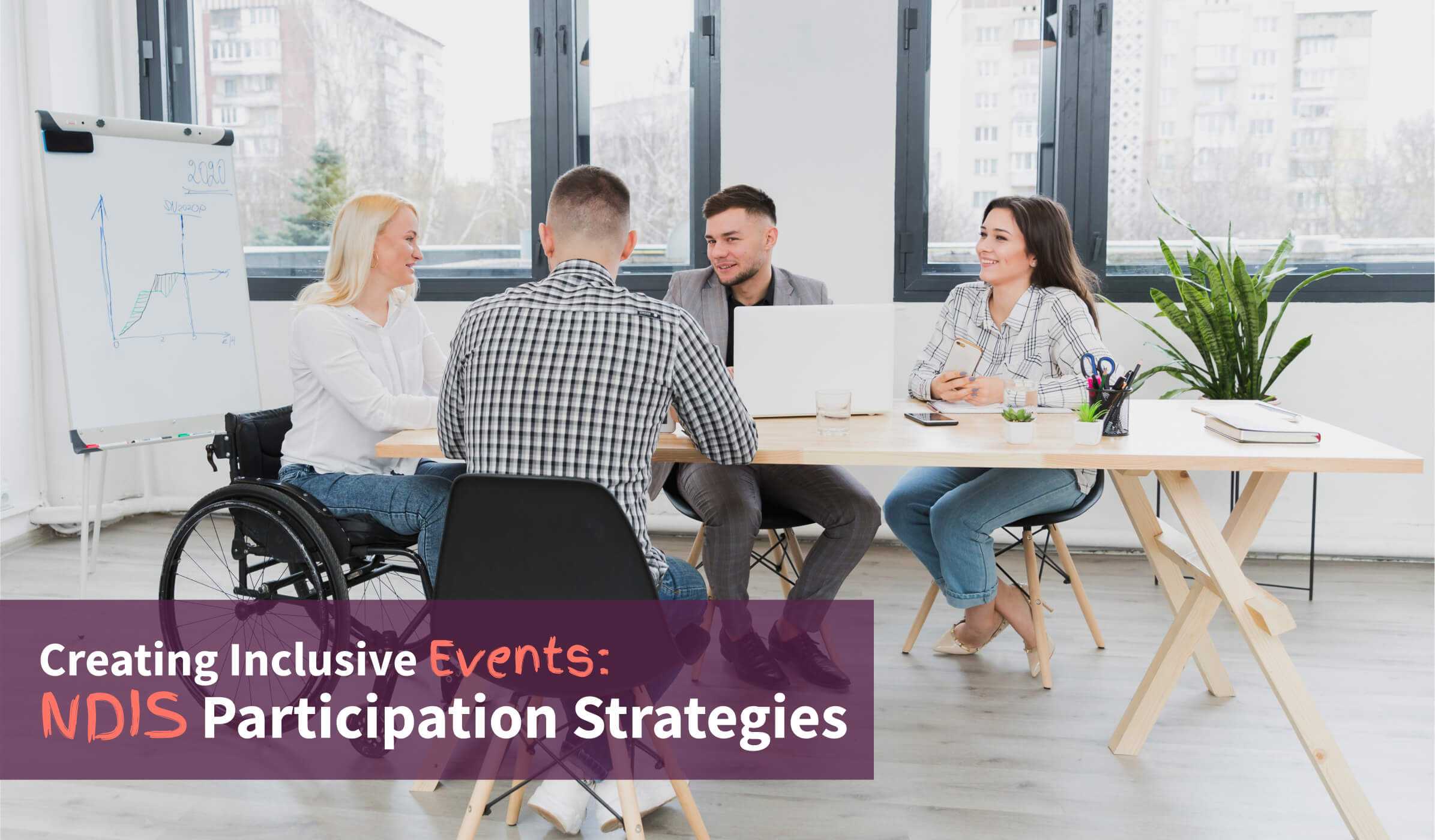Creating Inclusive Events NDIS Participation Strategies
May 17, 2025
|By Careassure
|4 min read

Creating an inclusive event is one of the most important aspects of improving community participation. Keep reading to learn how to have an inclusive event in Australia and its environs.
In the past, it was a thing of concern when someone with a walking disability could not enter an event without being assisted. This has led to frustration, sadness, and the feeling of exclusion. This is one of the reasons NDIS creates inclusive events for more community participation. In this article, we discuss inclusive events NDIS needs to implement and how to achieve it in a community.
What is an NDIS inclusive event?
NDIS events are public events that consider the needs of people with disabilities. Several kinds of public events are included in the term "community event." Everyone should be able to get into events in the same way. Also, everyone gains when events are open to everyone. Community events are mainly for the public. It might have National and local government consultation and engagement forums for cultural celebrations. Planning an accessible event improves the experience for everyone, including people who need it, their families, caregivers, older guests, parents with strollers, and the performers and organisers who may have to move equipment.
One of the benefits of living in a supported independent living is the independence that comes with it. Actively taking part in your neighbourhood has many benefits. It makes you more independent, helps you be more social, and encourages you to speak up for yourself. It also makes you feel better about your emotional health, boosts your confidence, and opens your eyes to new ideas. By getting involved in their communities, people with disabilities can find many ways to learn, work, and have fun, making their lives more satisfying.
How NDIS facilitate community participation
When discussing community participation in NDIS, you might wonder what NDIS is? and how it facilitates involvement. The NDIS is an Australian program that gives disabled people what they need to be active members of their communities. This is achieved by giving them the help and services they require. Individualised funding is one of the most essential parts of the NDIS. This feature lets users choose how their money is spent based on their needs and goals.
People can pick the best supports and services that help them get involved in their community with this personalised method, giving them a sense of power and independence. The NDIS provides a variety of support services that are specially designed to meet the needs of each person. Some of these services are help with personal care, mobility aids, therapy, and getting into community activities. The NDIS ensures that people have the resources and accommodations they need to be involved members of their communities by supporting them in every way.
Conclusion
NDIS-inclusive events are specific events that put the needs of people with disabilities in mind. Communities that hold inclusive events benefit from them. When planning, designing, and putting on neighbourhood events, we must remember that people have many different needs. Think about all the people who might want to use the space or participate in the event when you're planning it. This includes people with hearing, sight, mobility, cognitive, and psychosocial disabilities, caregivers, parents pushing strollers, and people for whom English is a second language.
This is one of the core features of Care Assure, a registered NDIS provider in Australia. We ensure we plan events and activities that all our NDIS participants can enjoy without feeling excluded. If you need a provider that takes the needs of your loved ones seriously, Care Assure is the one.
Frequently Asked Questions (FAQs)
Inclusive events are critical to the health and happiness of NDIS participants. This is because they help them feel like they belong and are part of a community. These events allow people to meet new people, learn new skills, and feel more confident, improving general quality of life.




